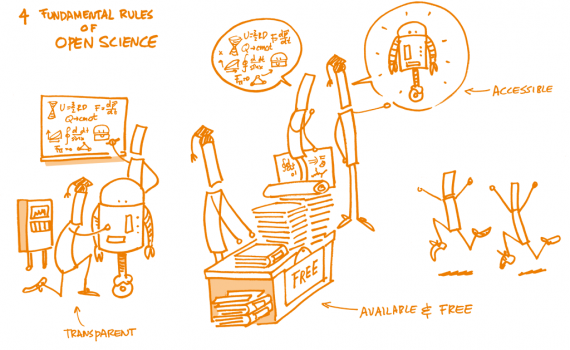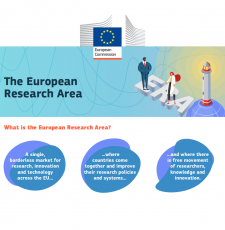
June was a busy month for the LIBSENSE Initiative - a collaborative space through which libraries and research and education networks (RENs) are advancing open access and open science in Africa.
At a LIBSENSE virtual workshop co-organized by LIBSENSE partners, EIFL, the West and Central African Research and Education Network (WACREN), UbuntuNet Alliance, the Arab States Regional Education Network (ASREN), COAR, AfricaConnect 3, OpenAIRE and GÉANT, we took a snapshot of the current national level activities on open science policies, repositories, community building and coordination in 15 countries: Benin, Burkina Faso, Cameroon, Côte d’Ivoire, Ethiopia, Ghana, Kenya, Malawi, Morocco, Mozambique, Nigeria, South Africa, Tanzania, Tunisia and Uganda (slides).
In Côte d’Ivoire, national networking and partnerships contributed to the success of a national open access repository. In Ethiopia, universities and the Ministry took a joint and holistic approach to national and institutional open access policies. The policies cover national and institutional open access repositories and open access journals; researchers’ and infrastructure managers’ skills, and encourage the uptake of open science practices. In addition to open access and research data management, the open science practices include involvement in collaborative community science projects and the use of open educational resources. ‘Openness’ is included as one of the criteria during research assessment and evaluation. Universities in Ghana, Kenya, Malawi, Tanzania and Uganda are finalizing their open access and research data management policies and have set up national DSpace user groups to provide peer support to repository managers.
As a follow up, three working groups were set up, on open science policies, governance and leadership; infrastructure - open access journals, repositories for publications and data and open discovery services; and capacity building - communities of practice and training. In addition, region-specific and language-specific discussions are taking place in Arabic (North Africa) and French (West and Central Africa) working groups.
LIBSENSE is happy with the many people involved already and with the lively discussions going on. The working groups are currently co-developing guidelines, support and training materials and LIBSENSE welcomes all African colleagues willing to contribute to this work. To join one of the working groups, contact libsense@ren.africa.
LIBSENSE has also started a series of open community calls, titled ‘Co-designing collaborative free and open source open access publishing infrastructures’, organized by WACREN, EIFL and the Coko Foundation, with African journals and books editors and publishers, researchers, librarians and tool builders. During the first call we discussed needs and tools for open access scholarly publishing in Africa; what open source tools and services for publishing books, journals and textbooks are currently in use, and training and support needs.
The next meetings, on 29 July, and in August, and September (dates to be confirmed) will identify areas for collaboration around shared free and open source open access publishing infrastructure and on prototyping services and tools and providing training and support.
MORE HIGHLIGHTS FROM AFRICA
The LIBSENSE workshop was planned as a face to face event as part of the Open Repositories 2020 (OR2020) conference in Stellenbosch, South Africa. The conference has been postponed to 2021. A series of virtual meetings took place instead, attracting 976 people.
I would like to highlight some more interesting presentations from Africa given during the virtual OR2020 meetings. African highlights were -
- The National Academic Digital Repository of Ethiopia – Technical, policy and governance aspects;
- Overcoming language barrier in open repositories: A case of Sokoine University of Agriculture;
- Skills needs assessment for South African open access repository practitioners;
- Documenting the Ephemeral: Performance Archive and the Showcase Repository at the University of Cape Town;
- Evaluation of institutional digital repository contents by postgraduate students of some selected tertiary institutions in Nigeria;
- Working towards knowledge accessibility and visibility through collaboration efforts: the case of Botswana International University of Science and Technology library;
- Research Data Management: A Stellenbosch University journey and Stellenbosch University’s ORCID integration: The highs and the lows;
- Measuring the impact of institutional repositories in selected Zimbabwean State Universities;
- Crafting an OER network in Ghana using IndieWeb building blocks;
- Building an Open Access repository in Eritrea with limited resources.
You can see slides and recordings from the broader OR2020 conference on the Zenodo Open Repositories community.
SHARE / PRINT







